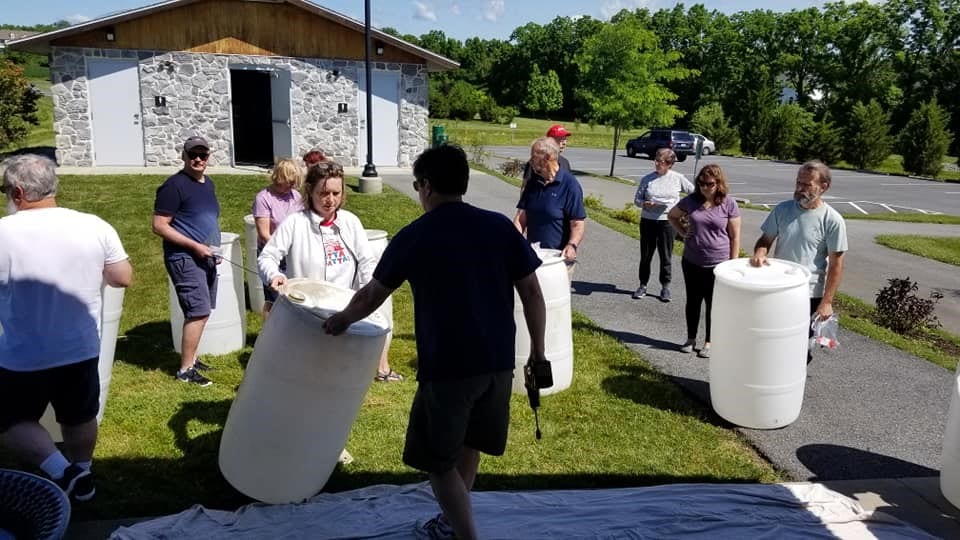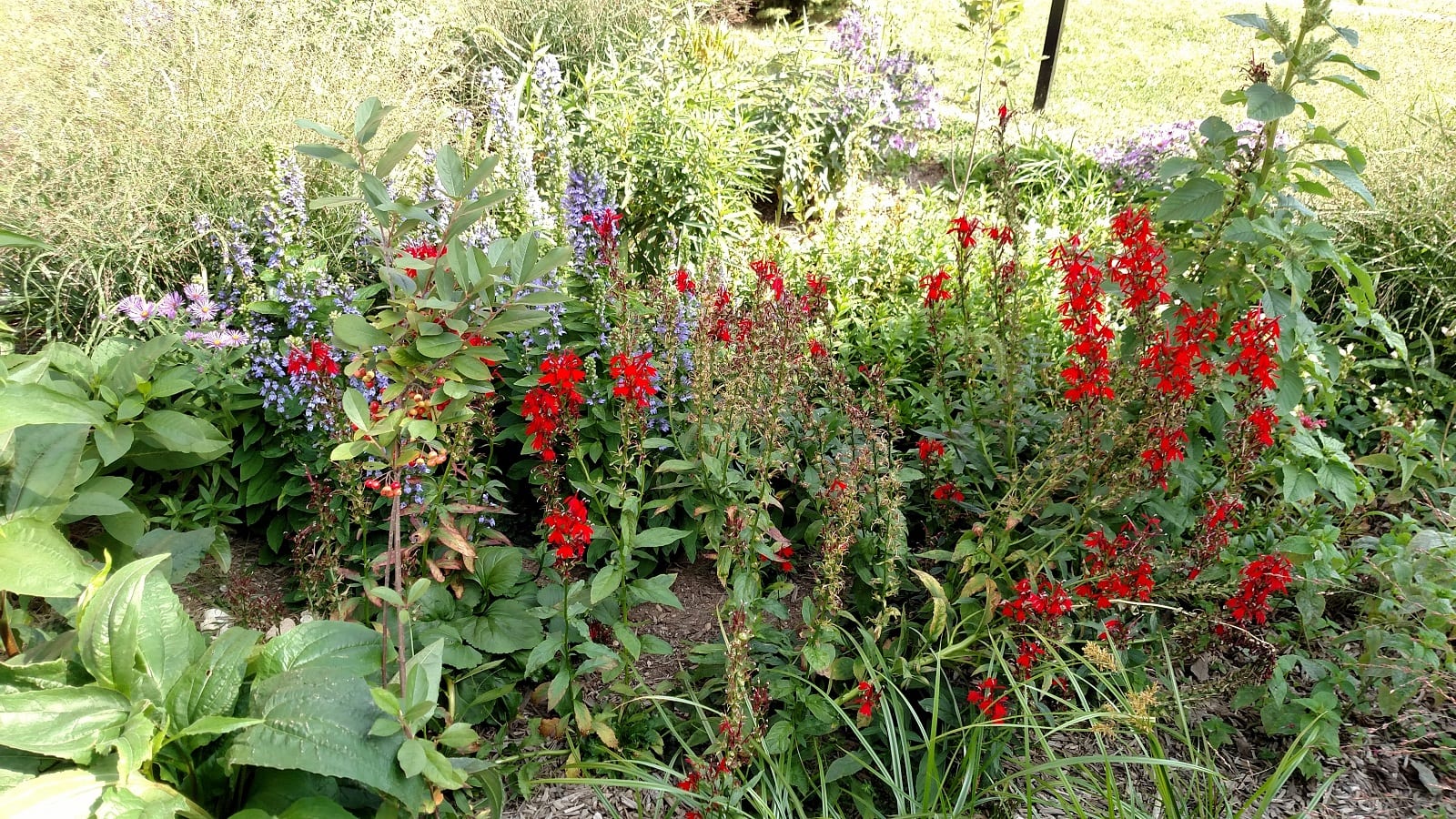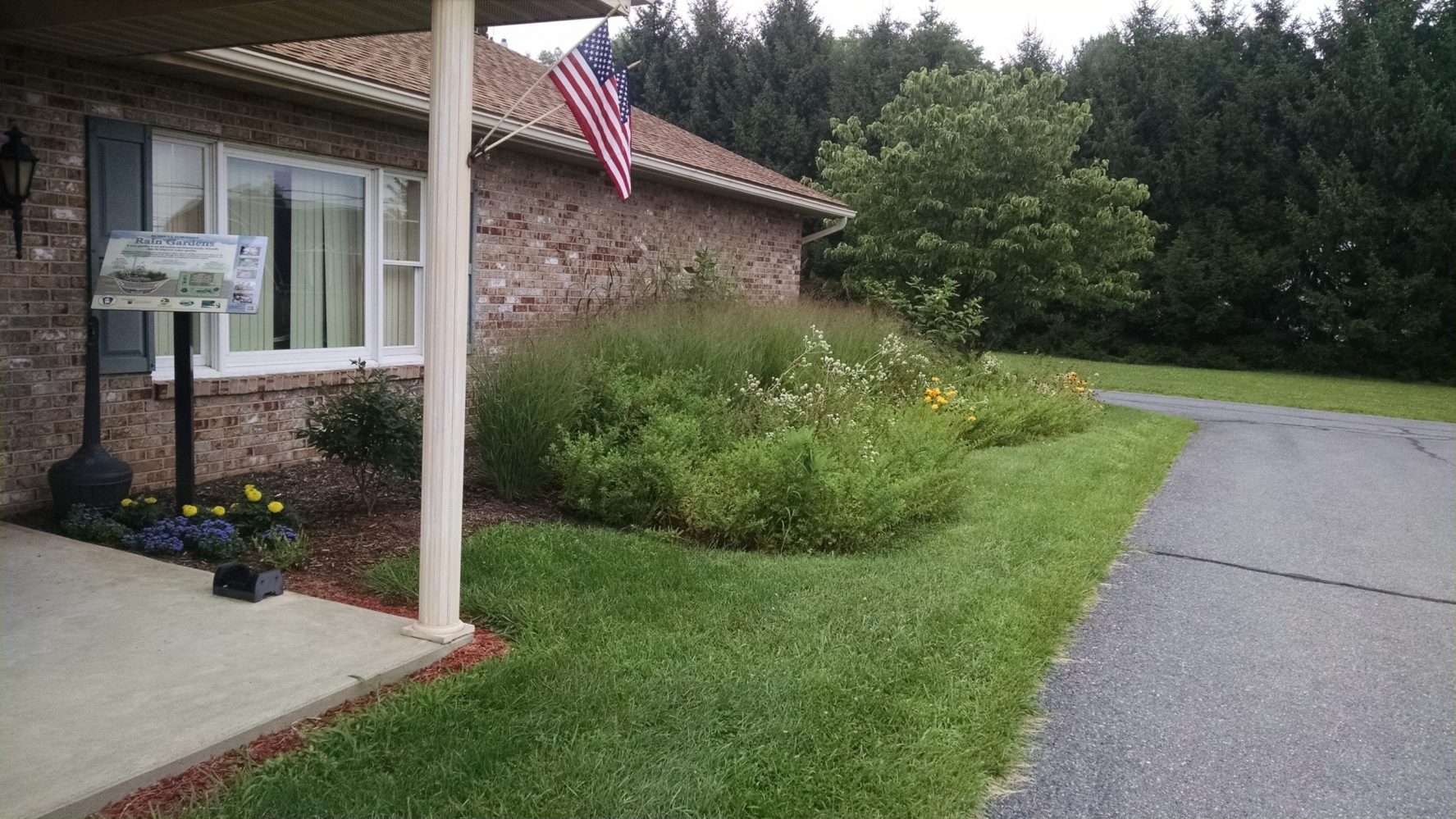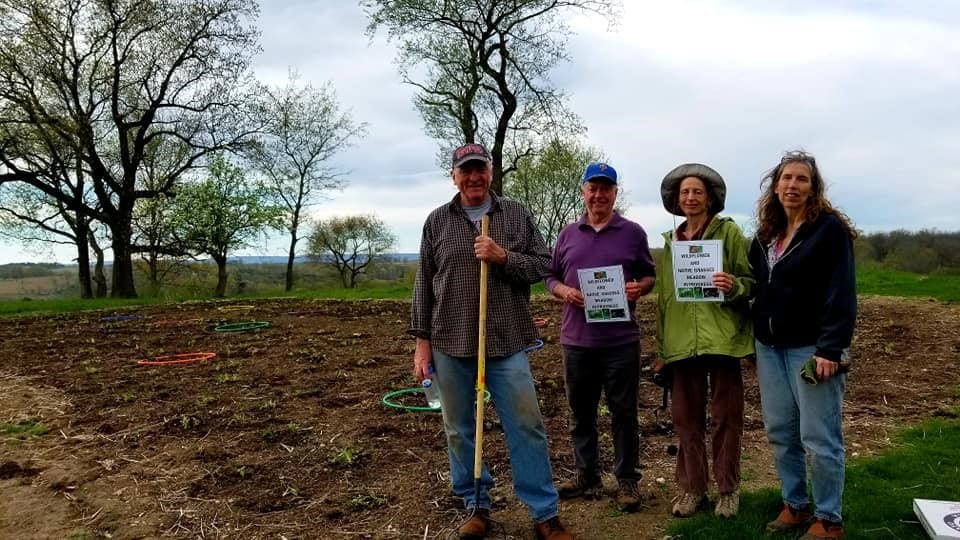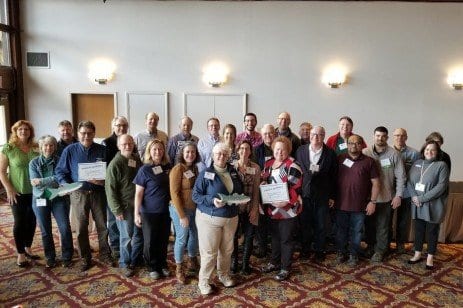Say you’re installing a rain garden and aren’t sure what type of plant to use, or a local park is experiencing erosion along a stream bank. Who can you call? The Penn State Extension Master Watershed Stewards! This program, similar to the Master Gardener program, trains volunteers to help their community find and use information about our water resources and the environment, and to act as stewards, leading and participating in conservation projects. This is part of Penn State’s mandate as a land grant university to conduct outreach to share university research to benefit the public. The Lehigh Valley Master Watershed Stewards program was founded in 2013 as the first MWS program in PA, and it has now spread across the state, training volunteers in 20 counties.
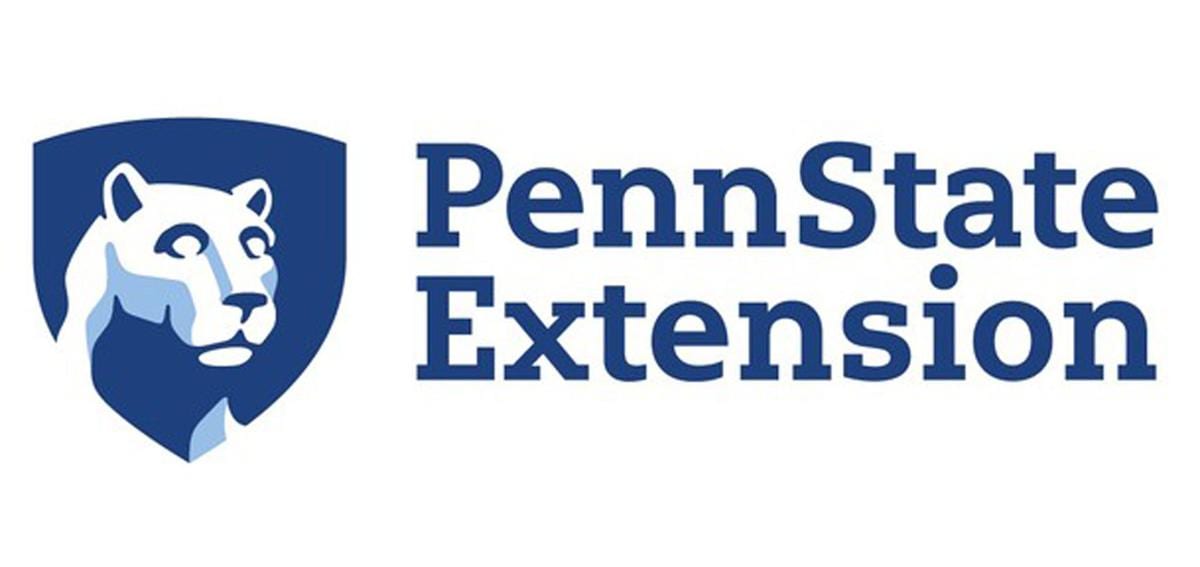 On a personal note, I recently completed training to become a Master Watershed Steward myself, and am excited for the opportunity it presents to work to improve the environment in my local area and to meet new people who are also interested in conservation. I think working locally, as the MWS program makes possible, is one way of remaining hopeful and inspired when thinking about issues like climate change, biodiversity loss, or global plastic pollution. My training class was made up of people I probably would have otherwise never met, all passionate about the communities and environment we live in. Although I’ve only met them virtually so far, it makes me feel much more confident in my ability to make a difference to be connected to so many other people with similar goals.
On a personal note, I recently completed training to become a Master Watershed Steward myself, and am excited for the opportunity it presents to work to improve the environment in my local area and to meet new people who are also interested in conservation. I think working locally, as the MWS program makes possible, is one way of remaining hopeful and inspired when thinking about issues like climate change, biodiversity loss, or global plastic pollution. My training class was made up of people I probably would have otherwise never met, all passionate about the communities and environment we live in. Although I’ve only met them virtually so far, it makes me feel much more confident in my ability to make a difference to be connected to so many other people with similar goals.
Brad Kunsman, coordinator for the Lehigh Valley MWS program for Lehigh and Northampton counties, echoes the importance of the local “boots on the ground” work stewards undertake. “Whether it’s going out and teaching students or residents, working on projects and installations, live stakings, or native plantings, [MWS] is very much service-oriented,” he says. The Lehigh Valley Master Watershed Stewards program currently has about 75 volunteers who work on a variety of projects, including hosting rain barrel workshops and attending community festivals (in non-COVID years) to increase education and awareness, leading community conservation efforts like monofilament collection and invasive species removal, and installing and maintaining rain gardens or riparian buffers.
They’ve also done larger scale demonstration projects that illustrate stormwater and stream health best practices. At Trexler Nature Preserve, they created a meadow with wildflowers and native species that shows homeowners what they can expect if they naturalize a portion of their lawn. A new riparian buffer along Coplay Creek in Hokendauqua Park includes 15 species of pussy willow that will eventually be able to be harvested and sold to local florists while the woody plants protect the stream, creating a great example of a multifunctional buffer. “Education is first and foremost,” Brad emphasizes. “Being part of the university and having a team of volunteers who are well-trained and knowledgeable can really help the community understand and work on water quality and conservation.”
MWS demonstrates the importance of working as a team with others in your local community to make a difference. The LV program has a long list of partners they’ve worked with who may lead projects, connect MWS to a site or project in need of some help, collaborate on workshops and seminars, or provide funding. No one group can do everything, and partnerships like these can allow all involved to accomplish a lot more. This fall, for example, Nurture Nature Center and MWS will be launching two new collaborative projects that will educate about watershed and stormwater management solutions, combining the strengths and resources of both NNC and MWS. Follow us on social media and check out our website for these upcoming exciting opportunities!
If you’re interested in connecting to existing water quality and conservation projects in the Valley, or you have your own ideas for projects that would benefit your community, MWS could be a great fit for you! Brad notes that stewards enter the program at every stage of life, with different prior knowledge about environmental and water science and different capacity for time to devote to the program. Volunteers include retired folks, parents, people fresh out of college, and thanks to a new Junior MWS program, youth as well. “Come in with an open mind. You’ll learn a lot of new things,” says Brad, “and bring your ideas! The program doesn’t have to be all content we provide. You can bring projects and environmental needs to our attention and we can work with you to make a difference in your community.” Stewards must complete a certain number of hours of volunteer work and continued training annually, which most reach or surpass easily as they get immersed in projects – the time goes quickly when you start spending a day planting trees or pulling invasive species. Since 2013, Master Watershed Stewards have put in over 42,000 volunteer hours, making a tremendously valuable contribution to our watersheds and the people who live in them.
All images from Brad Kunsman/Penn State Master Watershed Stewards

